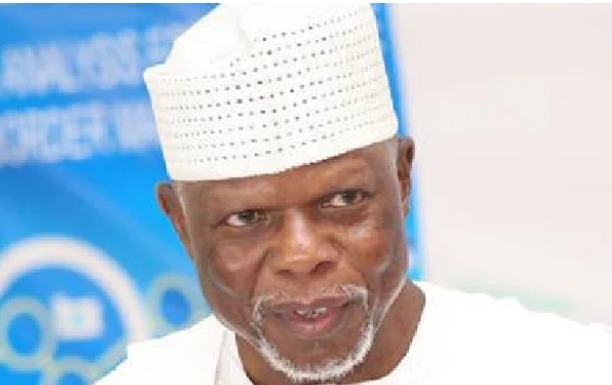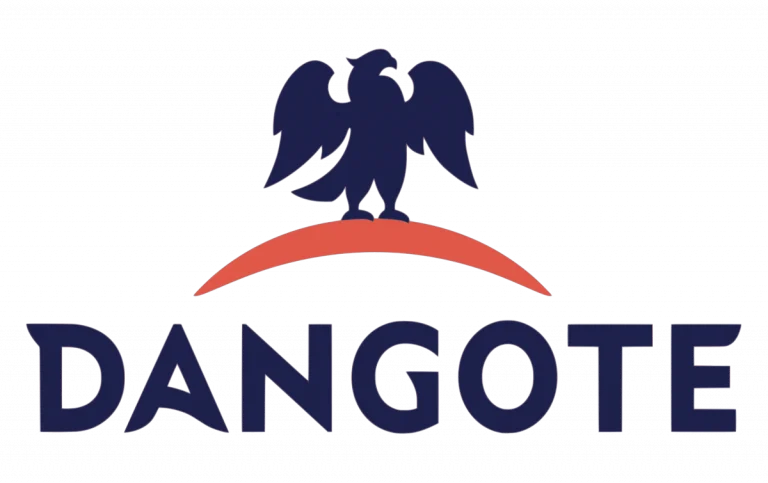Business
NNPC Can’t Justify N6.34tn Petrol Subsidy – Customs

The Comptroller-General of Nigeria Customs Service, Col. Hameed Ali (retd.), has stated that the Nigerian National Petroleum Company Limited (formerly Nigerian National Petroleum Corporation) cannot justify the volume of Premium Motor Spirit (petrol) being consumed in the country daily to warrant the over N6.34tn subsidy payment on the commodity annually.
Ali, in his presentation to the House of Representatives’ Committee on Finance at the continued hearing on the proposed 2023-2025 Medium Term Expenditure Framework and Fiscal Strategy Paper in Abuja on Thursday, argued that the NNPC cannot scientifically prove the 98 million litres/day consumption it was claiming, alleging that the nation’s oil company was supplying an excess of 38 million litres of PMS daily.
The committee had asked Ali about the like deficit of between N11tn and 12tn in the 2023 budget as proposed in the 2023-2025 MTEF/FSP.
The Federal Government is proposing a budget with estimates totalling N19.76tn, while the deficit will hover between N11.30tn and N12.41tn in the 2023 fiscal year. The Minister of Finance, Budget and National Planning, Zainab Ahmed, who appeared before the committee earlier on Monday, had decried that the government might be unable to provide for treasury-funded capital projects next year, especially due to dwindling revenue and annual payment of N6.34tn subsidy on petrol.
However, the NCS boss faulted the NNPC on its subsidy claims, saying, “I remember that last year we spoke about this. Unfortunately, this year, we are talking about subsidy again. The over N11tn we are going to take as debt, more than half of it is going for subsidy. The issue is not about smuggling of petroleum products. I have always argue this with NNPC.”
Ali added, “If we are consuming 60 million litres of PMS per day, by their own computation, why would you allow the release of 98 million litres per day? If you know this is our consumption, why would you allow that release? Scientifically, you cannot tell me that if I fill my tank today, tomorrow, I will fill the same tank with the same quantity of fuel. If I am operating a fuel station today and I go to Minna depot, lift petrol and take it to Kaduna, I may get to Kaduna in the evening and offload that fuel. There is no way I would have sold off that petrol immediately to warrant another load. So, how did you get to 60 million litre per day? That is my problem.
“The issue of smuggling: if you release 98 million litre in actual and 60 million litres is used, the balance should be 38 million litres. How many trucks will carry 38 million litres every day? Which road are they following and where are they carrying this thing to?”
READ ALSO: Nigerian Govt Confirms Petrol Subsidy Will End After Buhari’s Tenure
The committee’s Deputy Chairman, Saidu Abdullahi, who presided over the hearing, decried that funds under the subsidy scheme, which should have been used to finance capital projects, were being diverted into private pockets.
Meanwhile, the Customs CG told the committee that the Service would meet its revenue projection of N2.272tn for 2022, N2.873tn for 2023, N3.540tn for 2024 and N3.752tn for 2025.
The lawmakers queried the sum of N6.7bn spent on legal matters out of N7.5 billion approved in the 2021 Appropriation Act, with another N9.2bn proposed in the 2023 budget.
Ali, however, explained that the NCS wrote to the Presidency seeking virement of N4bn to cater for pending legal debts, adding that inadequate funds might cause the Service to pay as much as N20bn for a suit of N3bn for default.
The lawmakers also tasked the CG of the NCS with ensuring remittances of 80 per cent of the operating surplus to the government coffers as prescribed by the Finance Act, adding that the Customs should propose amendment to the extant law with a view to addressing whatever concerns might arise.
PUNCH
Business
NNPCL Announces Restoration Of Escravos-Lagos Pipeline

The Nigerian National Petroleum Company Limited (NNPCL) has announced the complete restoration of the Escravos-Lagos Pipeline System (ELPS) in Warri, Delta State, following the recent explosion on the asset.
The chief corporate communications officer (CCCO) of the nation’s oil company, Andy Odeh, in a statement, said that the pipeline is fully operational, reiterating the company’s resilience and commitment to energy security.
“NNPC Limited is pleased to announce the successful restoration of the Escravos-Lagos Pipeline System (ELPS) in Warri, Delta State.
READ ALSO:Fuel Price Cut: NNPCL GCEO Ojulari Reveals Biggest Beneficiaries
“Following the unexpected explosion on December 10, 2025, we immediately activated our emergency response, deployed coordinated containment measures, and worked tirelessly with multidisciplinary teams to ensure the damaged section was repaired, pressure-tested, and safely recommissioned.
“Today, the pipeline is fully operational, reaffirming our resilience and commitment to energy security. This achievement was made possible through the unwavering support of our host communities, the guidance of regulators, the vigilance of security agencies, and the dedication of our partners and staff.
“Together, we turned a challenging moment into a success story, restoring operations in record time while upholding the highest standards of safety and environmental stewardship.
“As we move forward, NNPC Limited remains steadfast in its pledge to protect our environment, safeguard our communities, and maintain the integrity and reliability of our assets. Thank you for your trust as we continue to power progress for Nigeria and beyond,” the statement read.
Business
Dangote Unveils 10-day Credit Facility For Petrol Station Owners

The Dangote Group has announced a 10-day credit facility backed by a bank guarantee for petrol station owners and dealers, alongside free direct delivery and other incentives, as part of a new supply arrangement.
The company disclosed this in a statement posted on its official X handle on Tuesday, inviting petrol station operators across the country to register to benefit from the offer.
According to the statement, participating dealers will enjoy “a 10-day credit facility backed by a bank guarantee,” with a minimum order requirement of 5,000 litres.
“Our free direct delivery service will commence soon,” the group said, adding that the offer is open to “all petrol station owners and dealers.”
READ ALSO:Dangote Sugar Announces South New CEO
The Dangote Group further called on operators to register their stations to access the supply arrangement.
“Register your petrol stations today to benefit from our competitive gantry price,” the statement read.
The company also disclosed that petrol supplied under the arrangement will be sold at a gantry price of ₦699 per litre.
For enquiries, the group provided the following contact numbers: 0802-347-0470, 0809-324-7070, 0809-324-7071 and 0203.
READ ALSO:Dangote Refinery Dispute: PENGASSAN Suspends Strike After FG Intervention
The announcement follows a recent petrol price adjustment by the Dangote Petroleum Refinery.
The PUNCH earlier reported that the refinery reduced its ex-depot petrol price from ₦828 to ₦699 per litre, representing a ₦129 cut or a 15.58 per cent reduction.
An official of the refinery, who spoke to PUNCH Online on condition of anonymity, confirmed the adjustment, saying, “The refinery has reduced petrol gantry price to ₦699 per litre.”
The new price reportedly took effect on December 11, 2025, marking the 20th petrol price adjustment announced by the refinery this year.
Business
JUST IN: Otedola Sells Shares In Geregu Power For N1trn

Billionaire businessman, Femi Otedola, has sold his majority stake in Geregu Power Plc for N1.088 trillion in a deal financed by a consortium of banks led by Zenith Bank Plc.
The Nigerian Exchange, NGX, made this announcement on Monday.
Otedola’s Amperion Power Distribution Company Ltd reportedly held nearly 80 percent of the power generating company.
READ ALSO:N200b Agric Credit Dispute: Appeal Court Slams NAIC, Upholds First Bank Victory
With this new development, Otedola, Chairman of First Holdco Ltd, parent company of First Bank of Nigeria Plc, will reportedly now concentrate on expanding his interest in the Nigerian banking sector, although he still retains some shares in Geregu.
Otedola is said to currently own 17.01 percent of First Bank — its single largest shareholder since the bank was established in 1894.

 News4 days ago
News4 days agoBREAKING: Anthony Joshua Involved In Road Accident

 Politics4 days ago
Politics4 days agoYou’re Not 001 – Wike Rubbishes Claims Of Fubara Being APC Leader In Rivers

 Politics4 days ago
Politics4 days agoWike Speaks On Defecting To APC

 Politics4 days ago
Politics4 days agoJUST IN: INEC Excludes PDP From Ekiti Governorship Election

 News4 days ago
News4 days agoDoris Ogala: How Pastor Chris Knelt Before Church, Begged For Forgiveness [Video]

 Politics4 days ago
Politics4 days agoGo To Hell, You Didn’t Pay My School Fees – Wike Hits Seyi Makinde

 News4 days ago
News4 days agoNAF Neutralizes Bandits At Turba Hill, Kachalla Dogo Sule Camps

 News4 days ago
News4 days agoNigerian Army Finally Reveals Details Of US Military-led Airstrikes In Sokoto

 Metro3 days ago
Metro3 days agoJUST IN: Court Orders Remand Of Ex-AGF Malami, Son, Wife In Kuje Prison

 Business4 days ago
Business4 days agoFuel Price Cut: NNPCL GCEO Ojulari Reveals Biggest Beneficiaries
























